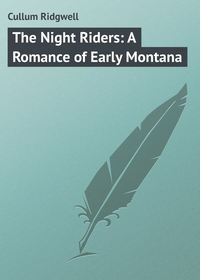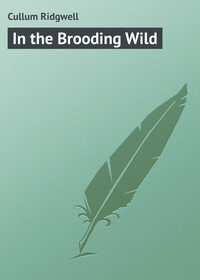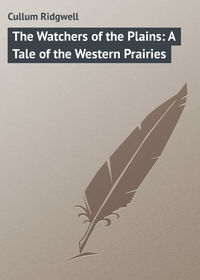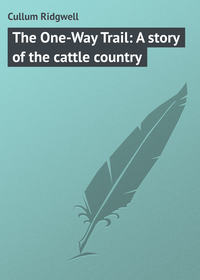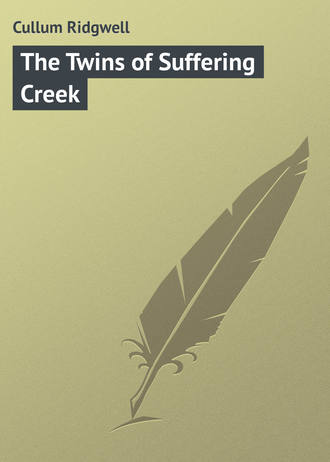 полная версия
полная версияThe Twins of Suffering Creek
“Easy, Gipsy. Easy you, Pete. Now Maisie. So! Steady, boys. Easy!”
The harsh voice was hushed and gentle. He was speaking to creatures that were not merely horses to him, but something nearer, perhaps even dearer.
And the well-trained creatures responded at once, slowing to an easy trot, a pace which they kept until the ford of the creek was reached. Here they dropped to a walk as they splashed their way through the turgid stream. But the moment the wheels of the cart topped the opposite bank, they once more resumed their headlong gait.
At once the gambler sat up. He straightened his lean body as a man who opens his lungs to breathe in deep draughts of fresh, bracing air. His narrow eyes stared out aside of him and beyond. His nostrils expanded, and his thin lips were tightly shut.
The camp was behind him. The trail, a hard, wide sand trail, lay ahead. The wide, wild world was about him on every hand, reminding him of days long gone by, reminding him that to-day his instincts were still the same. The same fiery, militant spirit that had driven him from one end of his country to the other still left him yearning for the ruthless battle of wild places and wilder men. The long months of inactivity, the long days of peace, the longer nights of his gambler’s craft, were for the moment gone. He was setting out, as in the old days, surrounded by all in life he cared for, offering a challenge to all the world, ready to grapple with whatsoever the gods of war might choose to thrust in his way.
The man’s spirits rose. The swift-flashing eyes brightened. His body felt to be bursting with a ravishing joy of life. His purpose was his own. The joy was his alone. He had found excuse for satisfying his own greedy lust, a lust for battle which no overwhelming odds could diminish. He was a savage. He knew it; he gloried in it. Peace to him was a wearisome burden of which at all times he was ready to rid himself. So he was born. So he had always lived. So, he knew, he would die.
The trail rose with the upland. It rose with that gradation which so wears down the ardor of almost any horse. But the creatures Wild Bill was driving were made of unusual mettle. Their courage was the courage of the man behind them. And only when his courage failed him would their spirit falter. They swept up the long stretch as though the effort were a pastime. With ears pricked forward, nostrils gushing, their veins standing out like whipcord through their satin coats, they moved as though every stride were an expression of the joy of living. And the man’s steel muscles were held at tension to keep their gait within the bounds of reason.
As they neared the hill-top he turned and glanced back over his shoulder. There lay the camp nestling on the far side of the creek. There stood Minky’s store, lording it over its lesser fellows with the arrogance of successful commerce. He could see a small patch of figures standing about its veranda, and he knew that many eyes were watching for a final sight of him at the moment when he should vanish over the hill.
They were friendly eyes, too, he knew. They were the eyes of men who wished him well. But he doubted if those good wishes were for his own sake. He knew he was not a man whom men loved. And he smiled grimly as he glanced down at the chest of gold in the body of the cart.
In a moment his eyes were looking out ahead again, and all thought of those he was leaving behind left his mind.
The hill-top passed, the horses swung down into a deep, long valley. It was in this valley, some six or seven miles farther on, he had encountered Scipio in Minky’s buckboard. He thought of that meeting now, and remembered many things; and as recollection stirred his teeth shut tight till his jaw muscles stood out like walnuts through his lean cheeks. He had promised Scipio that day. Well, his mind was easier than his feelings. He was confident. But he was stirred to a nervous desire to be doing.
Nothing escaped his watchful eyes. Every tree, every bush, every rise and hollow passed under his closest scrutiny. But this was simply his way, a way that had long since been forced into a habit. He did not anticipate any developments yet. The battle-cry was yet to be sounded. He knew the men he was likely to deal with better than any other class. He knew their ways, their subtleties. Who should know them better? Had not years of his life been spent–?
He laughed aloud, but his laughter rang without mirth. And his horses, taking the sound to be a command, broke suddenly into a gallop. It was the sympathy between man and beast asserting itself. They, too, possessed that nervous desire to be doing. Something of the significance of the journey was theirs, and their nerves were braced with the temper of fine steel.
He steadied them down with the patience of a devoted father for a pack of boisterous children. No harsh words disturbed their sensitive ears. The certainty of their obedience made it unnecessary to exert any display of violence. They promptly fell again into their racing trot, and the cart once more ran smoothly over the hard beaten trail.
The higher reaches of the creek cut into the valley from the right, and the trail deviated to a rise of sandy ground. He had reached the point of his meeting with Scipio. Nor did he slacken his pace over the dust-laden patch. It was passed in a choking cloud, and in a moment the rise was topped and a wild, broken country spread out before him.
Five miles farther on he halted beside a small mountain stream and breathed his horses.
But his halt was of the briefest. He simply let the horses stand in their harness. It was not time to feed, but he removed their bits and let them nip up the bunches of sweet grass about their feet. And as he did so he paused a moment at the head of each animal, muttering words of encouragement, and administering caresses with a hand which bore in its touch an affection that no words of his could have conveyed.
Then he went back to the cart and made a few simple dispositions. One was to securely lash the gold-chest in its place; but its place he changed to the front of the cart. Another was to leave the lid of the foot-box, built against the dashboard, wide open, and to so secure it that it could not close again. Another was to adjust the lowered hood of the cart in a certain way that it was raised head-high as he sat in his driving-seat.
Then, with a grim satisfaction in his small eyes as he glanced over his simple preparations, he jumped to the ground and replaced the bits in his horses’ mouths. In two minutes he was again rushing over the trail, but this time through a world of crag and forest as primitive and rugged as was his own savage soul.
So the journey went on, over mountainous hills, and deep down into valleys as dark as only mountain forests of spruce and pine could make them. Over a broken road that set the light cart perilously bumping, speeding along the edges of precipices, with little more than inches to spare, at a pace that might well set the nerves jangling with every jolt. Later a halt for feed and water, and on again, the willing horses taking their rest only as the difficulties of the trail reduced their pace to a laborious walk.
The man sat alert through it all. There was no question in his mind. He knew what lay ahead of him somewhere in those vast depths. He knew that what he looked for was coming just as surely as the Day of Doom. He did not ask when or where. That was not his way. It might come when it chose, for his part. He was ready and even yearning for the moment of its coming.
So his eyes never rested for a moment. Scarce a glance or thought did he give to his horses. Theirs it was to keep to the trail. Theirs it was to keep their pace. His was all other responsibility.
The sun was leaning towards the western crags, where, in the distance, they raised their snow-crowned heads towards the heavens. The ruddy daylight was deepening to that warmth of color which belongs to day’s old age. The forest shadows appeared to deepen, those dark forests so far below him in the valleys. Here, where he was racing along at a high level, all was bright, the air was joyous. Below him lay the brooding stillness where lurked a hundred unknown dangers. There were only about fifteen more miles of this broken solitude, and beyond that stretched a world of waving, gracious grassland right on to the prairie city whither he was bound.
He stirred; his roving eyes abruptly concentrated. One distant spot on the rugged landscape held him. He craned forward. The movement caused him to ease his hand upon the reins. Instantly the horses sprang into a gallop. So intent was he that for the moment the change passed unnoticed. He seemed only to have eyes and thought for that distant hill-top. Then of a sudden he realized the dangerous breakneck speed, and turned his attention upon his team.
The animals once more reduced to a sober pace, he turned again to the spot which held his interest; and his eyes grew bright with a smile that had nothing pleasant in it. He was grinning with a savage joy more fierce, more threatening, than the cruellest frown. The next time he bestirred himself it was to swing his gun-holsters more handy to the front of his body.
Later on his interest seemed to lessen. No longer was there that watchfulness in his eyes. Perhaps it was he deemed there was no longer the necessity for it. Perhaps what he had seen had satisfied his restless searching. Anyway, he now sat contemplating the shining backs of his horses as they sped down the hill, and his eyes were friendly as he watched the rolls of muscle writhing under their satin coats.
But when next he looked up his moment of gentleness had passed. His easier moods were never of long duration. One swift glance again at the distant hill, and then he turned from it and sat gazing at the dank, oozy prospect of the low-lying flat he was just entering with no sort of friendliness. The sharp hoofs of his team were flinging mud in every direction, and the rattle of the wheels had deadened to a thick sucking as they sank into the black mud. It was a heavy pull, but the speed was not checked. It only needed an extra effort, and this the willing team readily applied. He knew the spot well; and he knew that beyond lay the hill, the crest of which had so held his attention a few minutes before.
His thoughts traveled no farther than that hill. For the time at least there was nothing beyond. Later it would be for him to consider that. Just ahead of him lay the chances and changes which went to make up such a life as his. This he knew. And somehow the thought stimulated his pulses to a fuller appreciation of things.
In a few moments he was nearing the far boundary of the flat, and the ascent of the hill was about to commence. He smiled. Yes, it was well calculated. The hill would have to be taken at a walk. It was by far the steepest of the journey. He remembered, too, that the crest of it was reached by a final climb that became almost precipitous. He remembered, too, that the black woods that crowded its sides at the crest gave place to the skeleton trunks left by some long-forgotten forest fire. Yes, it was the one spot on the whole journey best calculated for what was to come.
The team no longer labored in the ooze. The ascent was begun. With heads held high, with ears pricked and nostrils distended they faced the big effort unflinchingly.
And the driver’s mind was calculating many things. It was moving with the swiftness of an able general’s in the midst of a big action. He glanced at the sky. Already the sun was hidden behind the western hills. Already the shadows were lengthening and the gray of evening was falling. The profound woods, dense and ghostly, had closed in. The trail was so narrow that the dreary, weeping foliage often swept the sides of the cart. But these things did not occur to him. His mind was ahead, amongst those aged skeletons left by the raging fire-fiend.
Progress was slow. It was almost too slow for the man’s eager nerves. He wanted to reach his goal. His lean body thrilled with a profound joy. He lusted for the battle which he knew to lie ahead of him. But, even so, he gave no outward sign. His face was set and harsh. His small eyes bored through the gloom, thrusting to penetrate beyond every bend in the winding road. Nothing escaped them. Each small fur that fled in terror at his approach was carefully noted, for they told him things he wanted to know.
Now the final steep was reached. It was truly precipitous. The sharp hoofs of the team clawed their way up. Such was the struggle that even the man found himself leaning forward, instinctively desiring to help the laboring animals. The bends in the trail were sudden and at brief intervals. It was as though those responsible for the original clearing of the road had realized the impossibility of a direct ascent, and had chosen the zigzag path as the only means of surmounting the hill.
The moments passed. Bend followed bend. The man in the cart found himself mechanically counting them. Two more. One more. The summit was almost reached. And beyond? He sighed. Maybe it was the sigh of a man whose nerves are relieved from their tension, knowing that beyond this last bend lay his goal. Maybe it was inspired by sympathy for his struggling horses. Anyway, his whole manner underwent a change. The watchfulness seemed to have gone from his eyes, his muscles to have relaxed. He leant back in his seat like a man full of weariness, and securely fastened his reins to an iron rail on the side of the cart.
He was at the bend now. The leaders were abreast of it. They were past it. He–
There was a sharp rattle of firearms, and half-a-dozen bullets swept pinging their way over his head. A hoarse voice shouted a command to halt. His horses plunged forward. But, quick as lightning, his hands flew to the reins, and he drew them up to a standstill in the open.
“Hands up!” shouted the same voice; and a horseman appeared on each side of the team.
Then came an exhibition of the gambler as he was, as in the old days he had always been known. It was all done in the fraction of a second. Simultaneously his two guns leapt from his holsters and two shots rang out. There was an ominous echo from the woods. One horseman reeled in his saddle, and the horse of the other man stumbled and finally fell.
The next moment the man in the cart was crouching down, all but the crown of his head and his gleaming eyes well sheltered by the loose-hanging canvas hood.
“I’m ’most allus ready to put my hands up!” he snarled. “Come on!”
CHAPTER XXXI
THE BATTLE
A shout of fury. A wild chorus of meaningless blasphemy. A thundering of hoofs. A shriek of pain–an appalling death-cry. The fight has begun–such a fight, in its wanton savagery, as might shame even the forest beasts. In a moment the human lusting for the blood of its fellows is let loose, than which there is no more terrible madness on earth.
Yet there was a difference. There was a difference of motive widely separating the combatants; and it was a difference that left the balance of offense doubtful.
To analyze the mental attitude of these people adequately would be well-nigh impossible. Their outlook possessed distortions which changed with chameleon-like rapidity. On the one hand was a band of lawless ruffians, steeped to their very souls in every sort of crime, in whose minds all law was anathema, in whose understanding all possession was a deliberate challenge, in whose hearts was no pity, no mercy, no feeling which belongs to the gentler side of human life; to whose comprehension death has no meaning until its relentless grip is fixed, and they feel the last spark of life crushing out of their own bodies. Then–But the analysis becomes hopelessly chaotic.
On the other hand motive is perhaps even more difficult still, though a shade less hopeless. The gambler was a man of strong thought, of strong forces. Nor was he devoid of the gentler feelings of life. Yet here lies the difficulty of associating the various sides of his character with his actions. He had set out for this encounter. He had yearned for it, as a child might yearn for a plaything. The contemplation of it gave him ecstasy. With an inhuman joy he desired the lives of these men. Not one, but all; and one even more than all. Then, too, his purpose was in face of overwhelming odds–in face of almost a certainty of death for himself. Such actions have been performed before in noble cases, but here–?
Was it simply his purpose to yield himself a martyr to the public welfare? Was it that he truly desired to avenge a wronged man? Was he setting himself up as the avenger of Sid Morton’s cruel death, a man in whom he had no interest whatever? No. It would be absurd to believe that these things were the promptings responsible for his present actions. Some hideous psychological twist was driving him. Some passion swayed him over which he had no control whatever. Some degeneracy was upsetting his mental balance, and forcing him against his better instincts. But, even so, his whole attitude was that of a man of clear, alert mind, of iron purpose, of a courage invincible.
Calm and cold Wild Bill crouched while, in the first rush of battle, the shots hailed about him. He reserved his fire, too, waiting for the effective moment with the patience of a skillful general. His every shot must tell, and tell desperately.
Three times he was hit in as many seconds, but beyond hugging his flimsy shelter more closely he gave no sign. His purpose rose above all physical hurt or sense of pain. He was watching the movements of one man–of one man only. His gleaming eyes pursued the figure of the outlaw leader to the exclusion of all else. James was his quarry. The rest–well, the rest were merely incidental.
And, emboldened by his intended victim’s silence, James suddenly changed his tactics. A long-ranged battle was little enough to his savage taste. He ceased the ineffective fire of his men and brought them together. Then in a moment, with the reckless abandon of his class, he headed them and charged. They came, as before, with a brazen shout, and the air was hideous with a fresh outburst of blasphemy, while a rush of lead searched the fragile cart in every direction.
But the din of voices, the crash of woodwork as the panels of the cart were riddled by the wildly flung shots, was powerless to draw the defender. His guns were ready. He was ready for the purpose in his mind. That was all. His fierce eyes lit with a murderous intent as he calculated with certainty and exactness.
On they came. They drove their maddened horses with savage spurs right up to the cart. It was the moment the gambler awaited. He leapt, and in a flash his tall figure was confronting the leader of the attack. And as he rose his arms were outstretched and his great guns belched their murderous fire. Two men rolled from their saddles with a death-scream that died down to a hideous gurgle, as the racing hoofs trod the last atom of life out of their bodies. His guns belched a second time, and James’ throat was plowed open, and the rich red blood spurted in a ghastly tide. Another shot and another man fell forward, clutching his horse’s mane while he was borne from the battle-field to the dim recesses of the forest by his uncontrolled and affrighted beast.
But the gambler paid a high price for these successes–far higher than he could really afford. Four times more he was badly hit. Four times the hot slither of burning lead plowed its way amidst the life-channels of his body. And his retreat to cover was something almost in the nature of collapse.
But the spirit of the man admitted of no weakening. It rose dominant over all physical sensation. He thrust aside the cognizance of his hurts, and abandoned himself solely to his purpose. James was still in the saddle, and the sight of his hated personality consumed him with rage and disgust at the failure of his first attempt.
“Still around. Still around,” he muttered. And in a moment the battle was surging once more.
No longer was the leader of the attack moved by the irresponsible bravado of his first attack. He was a raging savage, goaded by the desperate wounds he had received, and the knowledge that he and all his force were being held at bay by one man. So he charged again, a headlong rush, howling as he came at the head of his four remaining supporters.
They came like an avalanche, their voices making hideous the rapidly falling night, while the wounded defender waited, waited, all his purpose concentrated, husbanding his ebbing strength as a starving man might husband the last crumbs of food. He knew that not only his strength, but his very life was slowly ebbing in the red tide that was fast saturating every shred of his clothing.
Again they reached the cart. Again the maddened horses were driven head on to the dreaded fortress. And instantly their quarry rose to his full height, a grim specter thrilling with a murderous purpose, his arms outstretched, his guns held low, that there should be no mistake this time.
The crash of battle was appalling. The scene was almost lost in the smoke cloud which hung over it. There was fire and cross-fire. There were exultant shouts and cries of pain. And through it all the scuttling of rushing hoofs and champing bits. A moment and the defender dropped. But instantly he rose again, gripping in his nervous hands the butts of a pair of fresh guns snatched from his foot-box. Nor did he stir foot again, nor relax a muscle, till every one of the twelve chambers was emptied.
Then, with an oath that carried with it all the pent-up hatred of a bitter heart, he flung both weapons in the direction whither his last shot had gone, and, staggering back, dropped helplessly into the driving-seat behind him.
The smoke hung heavily and drifted slowly away upon the still air. The sound of rushing hoofs receded and died away in the distance, and in a while a profound quiet settled upon the scene. The man lolled heavily in his seat, and his eyes closed. His face was a ghastly gray, his eyes were sunken and his blackened lips hung agape. His arms hung helplessly at his side, and his legs were stretched out in a pitiable attitude of uselessness.
The moments passed drearily. For a long time there was no movement of any sort but the restless fidgeting of the horses. They had stood through all the turmoil as their master had long since trained them to stand. But now that it was over their eager spirits were demanding the joy of the trail again. It almost seemed as though, in their equine minds, they had a full realization of the meaning of that battle in the wild, as though sympathy between master and beast had held them during that fierce ten minutes still and passive, lest through any act of theirs they should cross the will of the one being whom they acknowledged their lord. And now that it was over and the crisis passed, it seemed as if they understood that victory had been achieved, and their duty once more lay upon the trail ahead of them.
At last the eyes of the man opened. The chafing of his horses had penetrated to his numbing brain. Their fierce depths were dull and lusterless as they rolled vaguely around. Yet there was intelligence in them, although it was the intelligence of a weary, fainting mind. They closed again, as though the will behind them lacked in its support. And then followed a sigh, a deep, long sigh of exhaustion.
There was another pause, and presently there came a bodily movement. The man stirred uneasily, in the manner of one gathering his weakening forces for a supreme effort from which his whole body shrank. Again his eyes opened, and this time their depths were full of purpose. Suddenly his legs gathered under him and his arms drew up, and in a moment he staggered to his feet, his hands clutching support upon the back of the seat.
He stared about him doubtfully, and his uncertainty was pitiful to behold. His eyes were only half open, as though the effort of sustaining their lids was too great for his failing powers. They wandered on over the scene, however, until they suddenly fixed themselves upon a spot where two figures were stretched upon the ground. One was lying upon its side with its knees drawn up as though asleep; the other was stretched upon its back, its arms flung out and its legs lying across the other’s body. The dead eyes were staring up at the darkened sky, glazed and motionless.
He stared down upon these figures for some time, and the sight seemed to put fresh strength into him; and at last, when he turned away, a pitiful attempt at triumph shone in his dull eyes, and a ghostly smile flitted about the corners of his sagging lips.




